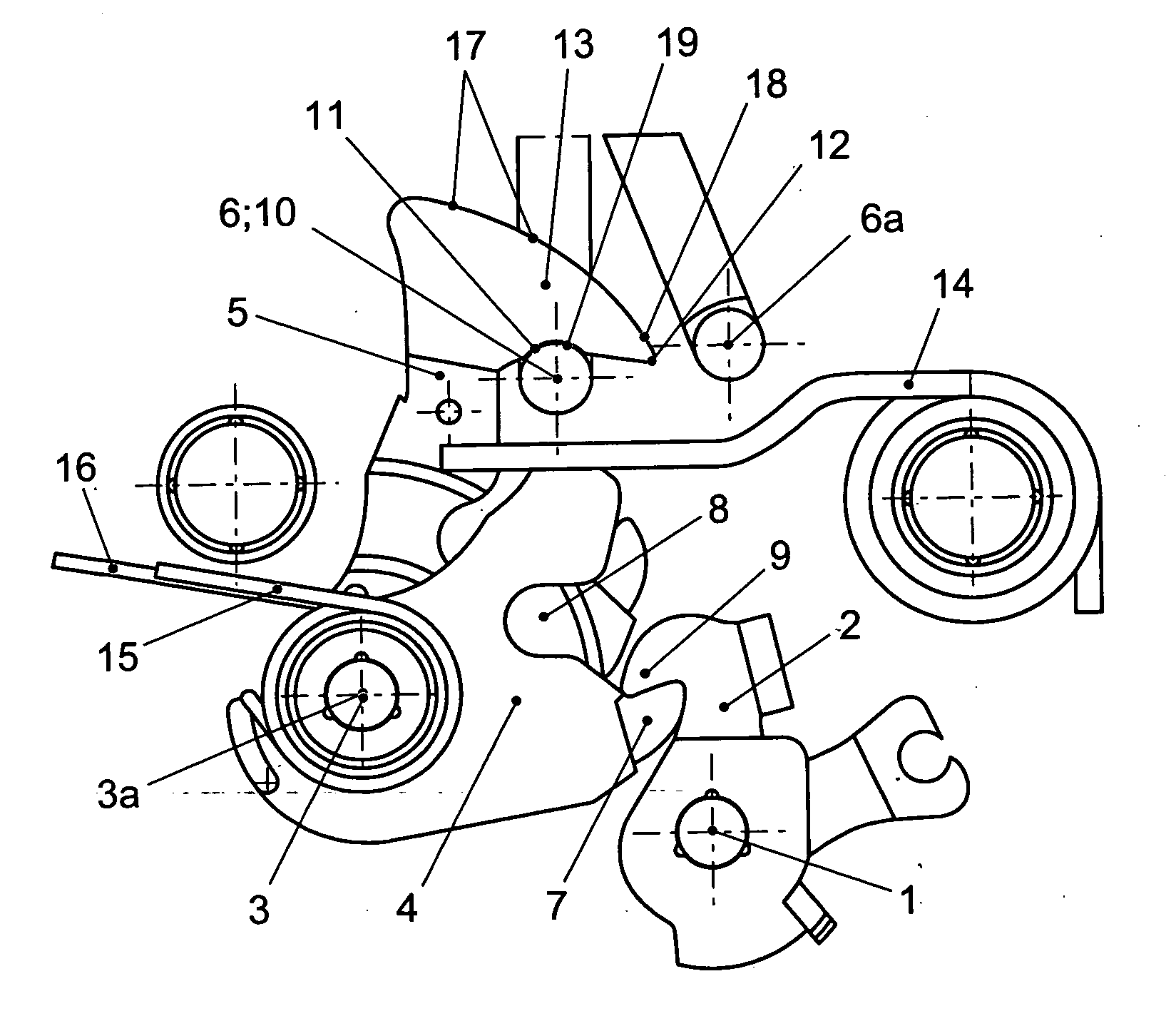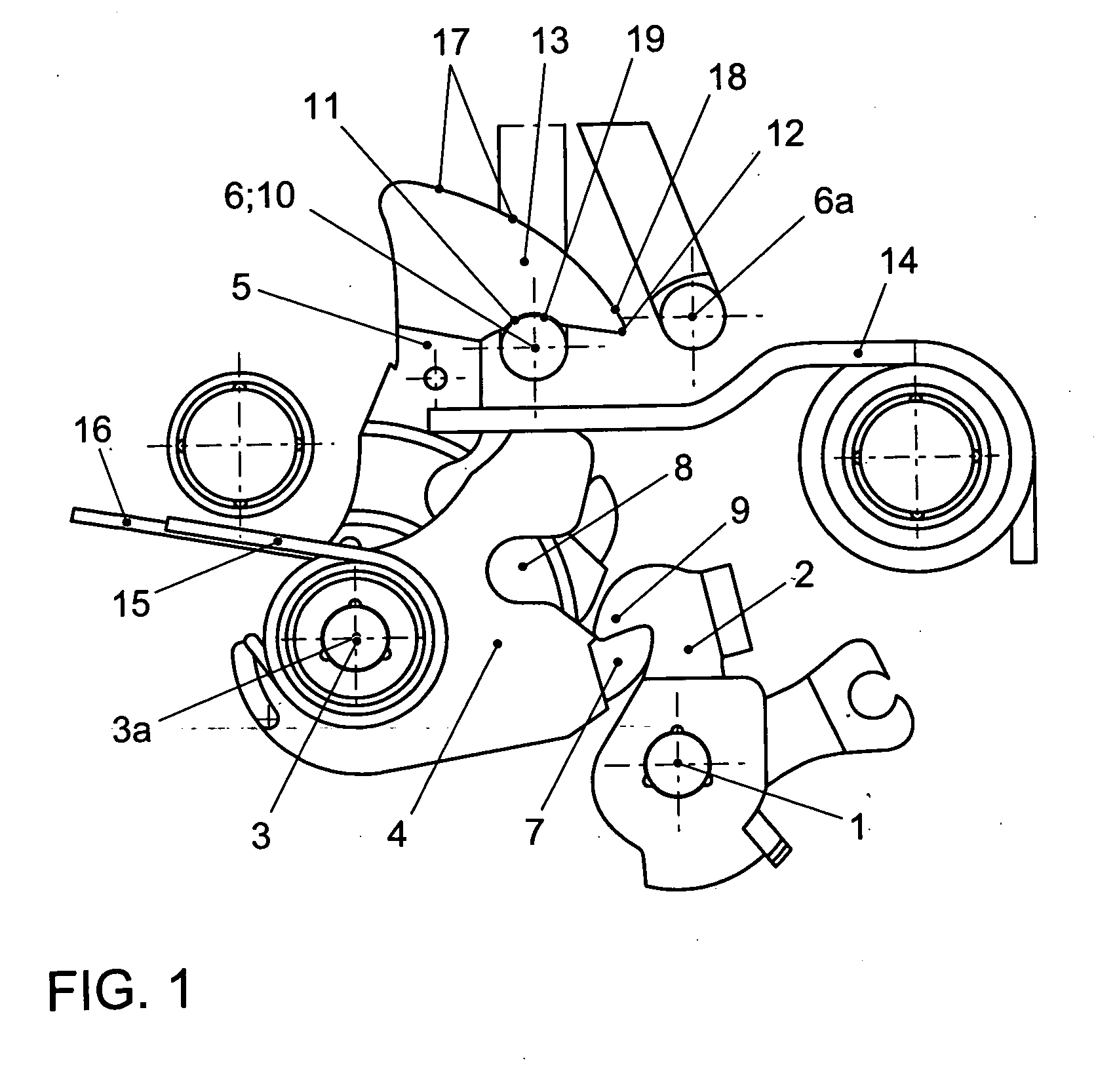Front hood safety closure system having a separate catch-hook control
a safety closure and front hood technology, applied in the direction of fastening means, mechanical devices, lock applications, etc., can solve the problems of increasing the number, high cost, and relatively large overall height, and achieve the effect of avoiding a possible sham closur
- Summary
- Abstract
- Description
- Claims
- Application Information
AI Technical Summary
Benefits of technology
Problems solved by technology
Method used
Image
Examples
Embodiment Construction
[0027]The front hood safety closure system according to FIG. 1 includes a retaining pawl 2 disposed in a manner allowing it to swivel about a first axis 1, a rotary latch 4 disposed in a manner allowing it to swivel about a second axis 3, a catch hook 5 able to swivel about a third axis 3a, as well as a striker 6, catch hook 5 being assigned to rotary latch 4. Retaining pawl 2 and rotary latch 4 are supported in a lock cover of a motor vehicle. Striker 6 is positioned on the front hood of the motor vehicle such that, when the front hood is in the closed position, the rotary latch is operatively connected to striker 6 and is retained by retaining pawl 2. Striker 6 is substantially U-shaped, and has a middle limb 10. Rotary latch 4 is fork-shaped, and has a recess 8 which is adapted to the contour of middle limb 10. In the arrested state, recess 8 receives middle limb 10 of striker 6. In addition, rotary latch 4 has a stop 7 which, in the arrested state, engages with an integral forma...
PUM
 Login to View More
Login to View More Abstract
Description
Claims
Application Information
 Login to View More
Login to View More - R&D
- Intellectual Property
- Life Sciences
- Materials
- Tech Scout
- Unparalleled Data Quality
- Higher Quality Content
- 60% Fewer Hallucinations
Browse by: Latest US Patents, China's latest patents, Technical Efficacy Thesaurus, Application Domain, Technology Topic, Popular Technical Reports.
© 2025 PatSnap. All rights reserved.Legal|Privacy policy|Modern Slavery Act Transparency Statement|Sitemap|About US| Contact US: help@patsnap.com


